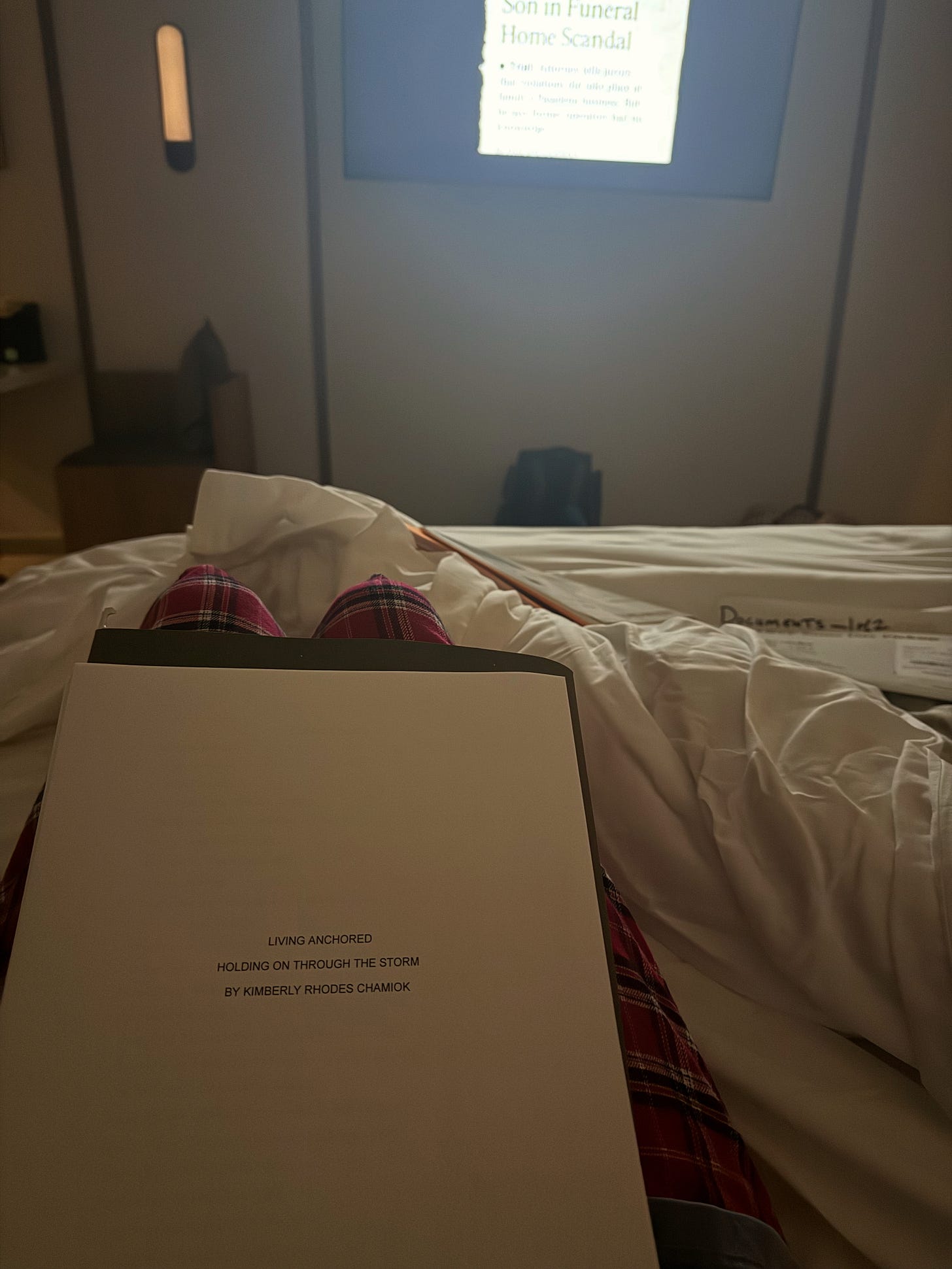The Feedback That Told Me How They Really Felt
Unpacking harsh criticism and breaking free of judgment. Not all critique is about the work. Sometimes it’s about the person who’s never really seen you at all.
There are moments when someone’s feedback reveals far more about them than it ever could about you.
I recently received notes from someone who’s known me for years, and reading through their comments, I wasn’t just absorbing critique—I was confronted with a reflection of how this person has viewed me all along.
The questions they raised, the things they chose to doubt or diminish, weren’t about clarity or editing. They were about disbelief.
And not disbelief in the story, but in me.
It’s one thing to receive honest, thoughtful critique. I welcome that.
But it’s something else entirely when feedback is given through a lens clouded by judgment, skepticism, or personal bias.
There’s a kind of feedback that doesn’t come from curiosity or care.
It comes from a desire to control the narrative.
To keep someone small.
To shape their story into something easier to accept or easier to ignore.
And when that happens, you feel it.
In my case, it showed up most clearly in response to a deeply personal story—one I’ve held close for years.
As a child, after experiencing a traumatic event that I still don’t have full words for, I began having a recurring dream of three boys.
I didn’t understand it at the time, but it brought me comfort.
It gave me something to hold onto during a season when everything else felt unstable.
Over the years, the dream returned again and again. It became a small, strange source of peace in a life that was often marked by survival.
When I met my husband, he joked about needing a boy to carry on his name.
I laughed and told him, “Well, you better marry me I already know I’m having three.”
That dream wasn’t a prediction. It wasn’t a claim of divine foresight. It was simply something that lived in me—something that helped me feel okay when nothing else did.
But instead of being received with tenderness or even curiosity, that story was written off as absurd.
And maybe to someone else, it is. But that doesn’t make it any less true for me. That dismissal wasn’t just about the dream.
It was about the way this person has always engaged with my story: with doubt, with distance, and with the assumption that I am somehow exaggerating, mistaken, or reaching. That reaction didn’t just hurt — it clarified.
Because sometimes, it’s not until someone gives you their honest response that you realize just how little they’ve ever tried to understand you.
I’ve spent years trying to bridge gaps with people who were never trying to meet me there. I’ve stayed open in rooms where I should have been guarded.
I’ve kept showing up for people who didn’t want the real version of me—just the version they could explain to themselves. For a long time, I internalized that dynamic.
I told myself I must be hard to love. Too emotional. Too much. But now I see it differently. The problem isn’t that I’ve been too much. The problem is that I’ve spent too long trying to fit inside someone else’s limited imagination of who I’m allowed to be.
That’s the thing about writing a book, or sharing your story in any public way. It brings out the projections. It reveals the gaps in relationships you thought were solid. And it exposes how many people have only accepted you on the condition that you never challenge their perception. Once you do, their tone shifts. The quiet doubt creeps in. The subtle condescension starts to show. And if you’re not careful, you’ll start believing them instead of yourself.
But I’m not explaining myself anymore.
Not to people who’ve already decided who I am.
I’ve lived this story. I know what it cost me.
I’ve survived things most people will never understand and then kept showing up like it was no big deal.
I’m done handing my truth to people who only want to trim it down to something more palatable.
There’s a particular kind of grief that comes when you realize someone close to you was never really for you.
Not in the real way.
Not in the way that holds space for your complexity or honors the path it took to become who you are now.
I’ve felt that grief recently.
And I’m not going to ignore it anymore.
If you’ve felt it too. If someone’s reaction to your truth made you feel smaller, uncertain, or second-guessed—I hope you know this:
You’re not too sensitive.
You’re not overreacting.
You’re just waking up.
And that clarity you feel? It’s uncomfortable, but it’s also a gift. I’m learning to let people’s discomfort with my truth stay theirs to carry. I’m learning that sometimes peace is choosing not to offer an explanation.
Not because I don’t have one.
But because I don’t owe it.
Hold the rope.
Let’s talk:
Have you ever had someone’s feedback expose more about your relationship than about the thing you were actually sharing? What did it shift in you?
Drop a comment below. I’d love to hear your story.






Kim!!!! I am so sorry that this has happened. You’ve been vulnerable and true. I LOVE that you always knew you’d have your 3 boys. God is so good to show you that. It’s like there was a hope for where you’d be today- confident, centered and cool as hell! 🤩 Thank you always for sharing the deep parts of you. The world needs it and I need it. 💛